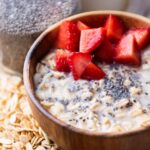1. Alcohol
“First and foremost, stop drinking,” Bagel says. Here’s why: Alcohol opens the blood vessels in the skin. When your blood vessels are dilated, white blood cells, including the T cells that are believed to be responsible for psoriasis, can sneak into the outer layers of your skin more easily — and you don’t need to be inviting more T cells.
“Your psoriasis symptoms may worsen even if you’re a light to moderate alcohol user,” says Chelsea Marie Warren, RD, a certified wellness coach based in Oregon.
In a survey of more than 1,200 people with psoriasis, over half of respondents said they noticed improvement in their symptoms after reducing their intake of alcohol, gluten, and some vegetables known as “nightshades.”
2. Junk Food and Processed Food
Psoriasis is an inflammatory condition, and junk foods and other highly processed foods tend to be high in saturated and trans fats and refined starches and sugars, all of which can promote inflammation. These include sugary sodas and “energy” drinks, packaged snacks, candy, and baked goods, sweetened breakfast “cereals,” and many packaged meals.
Another reason to avoid junk foods is that they are high in calories with little nutritional value, and people with psoriasis often have weight problems. “If you have psoriasis, you have an increased risk of heart and vascular diseases,” Bagel says. “Being overweight adds to that risk.”
3. Red Meat
Red meats contain a polyunsaturated fat called arachidonic acid. “This type of fat can worsen psoriasis symptoms because it can easily be converted into inflammatory compounds,” Warren says. The saturated fat in red meat also triggers inflammation in the body.
You should also avoid sausage, bacon, and other processed meats.
4. Dairy Products
Like red meat, dairy products also contain the natural inflammatory arachidonic acid and saturated fat. “Cow’s milk is one of the biggest culprits,” Bagel says, because it also contains the protein casein, which has been linked to inflammation. Egg yolks, too, are high in arachidonic acid; if you’re worried they might be worsening your symptoms, try nixing them from your diet and see if there’s an improvement.
5. Nightshade Plants
Some people report that plants from the “nightshade family” — which includes peppers, white potatoes, eggplant, and tomatoes — exacerbate their psoriasis. “Certain patients believe that if you avoid these vegetables, you decrease your symptoms,” Bagel says. “I’m not so sure about that, but I’m not opposed to people trying it.”
6. Gluten
This protein is found in some grass-related grains, including rye, wheat, and barley. Some people who have psoriasis may also be sensitive to gluten, and so for those people, avoiding gluten may improve their psoriasis symptoms.
Research has shown that there’s an increased risk of psoriasis in patients with celiac disease — a condition in which gluten causes an immune reaction that can damage the small intestine — and increased risk of celiac disease in patients with psoriasis. So far, studies on gluten-free diets for people with psoriasis only show benefits for those with evidence of gluten sensitivity or celiac disease. Studies are ongoing, and the idea of psoriasis patients benefiting from a gluten-free diet remains controversial, Bagel says. Even if it works, he adds, it’s not an easy diet to follow.
If you suspect gluten is a trigger for your symptoms, ask your doctor about getting tested for celiac disease.




